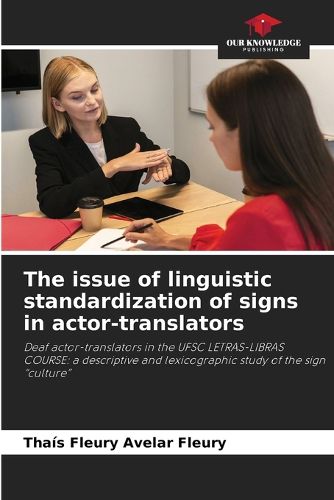Readings Newsletter
Become a Readings Member to make your shopping experience even easier.
Sign in or sign up for free!
You’re not far away from qualifying for FREE standard shipping within Australia
You’ve qualified for FREE standard shipping within Australia
The cart is loading…






In this paper, we discuss the means for linguistic standardization in the Virtual Teaching and Learning Environment (VLEA) of the Letras - LIBRAS course, which presents such linguistic variation in the use of signs by deaf actor-translators that, at times, the students of the course felt confused. To carry out this investigation, we started from the problem of variation in translation practice, identifying the difficulties and, aware of them, indicating alternative paths. As a working methodology, the actor-translators were interviewed about their doubts, suggestions and difficulties in dealing with variations in the translation of signs for a virtual course and, subsequently, there were informal conversations with students on the course about the results of the proposed changes to the translation process and linguistic standardization. As a practical result of the discussions proposed in this work, we came up with a technical glossary that enables the linguistic standardization project in the translations carried out in the course.
$9.00 standard shipping within Australia
FREE standard shipping within Australia for orders over $100.00
Express & International shipping calculated at checkout
In this paper, we discuss the means for linguistic standardization in the Virtual Teaching and Learning Environment (VLEA) of the Letras - LIBRAS course, which presents such linguistic variation in the use of signs by deaf actor-translators that, at times, the students of the course felt confused. To carry out this investigation, we started from the problem of variation in translation practice, identifying the difficulties and, aware of them, indicating alternative paths. As a working methodology, the actor-translators were interviewed about their doubts, suggestions and difficulties in dealing with variations in the translation of signs for a virtual course and, subsequently, there were informal conversations with students on the course about the results of the proposed changes to the translation process and linguistic standardization. As a practical result of the discussions proposed in this work, we came up with a technical glossary that enables the linguistic standardization project in the translations carried out in the course.